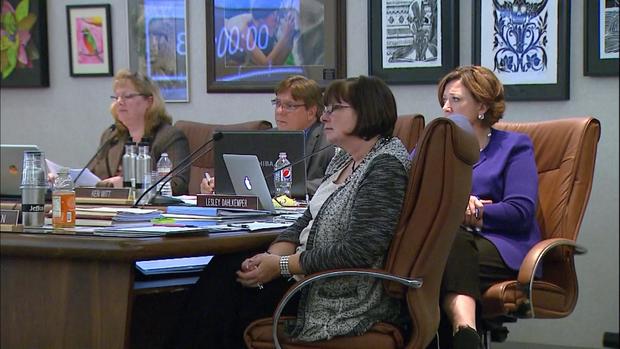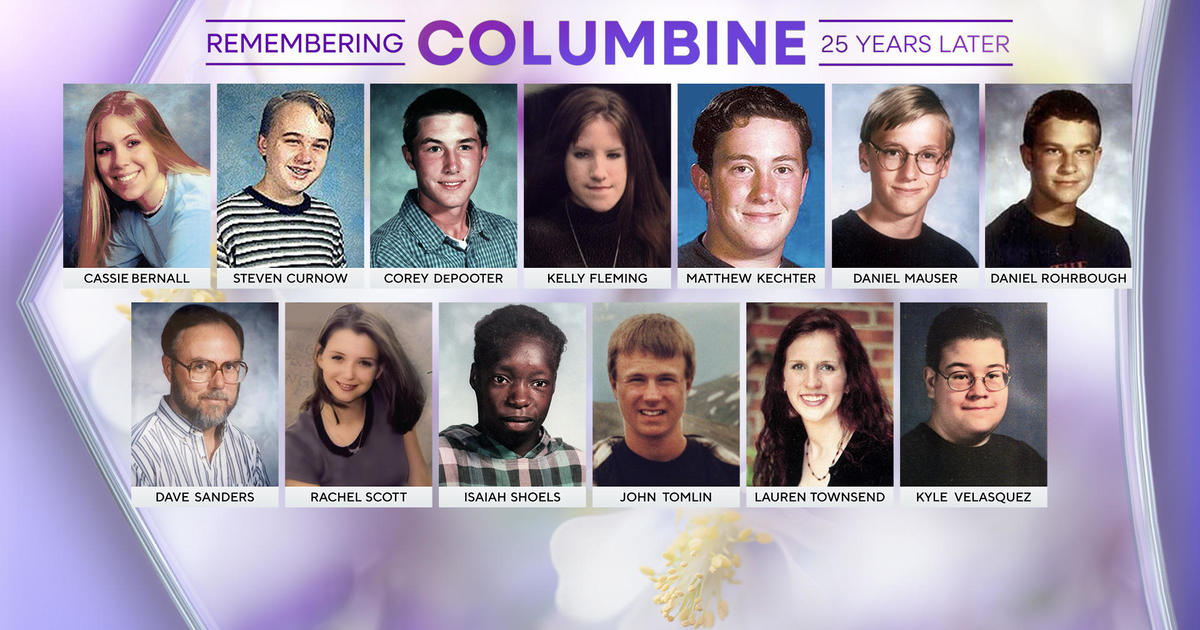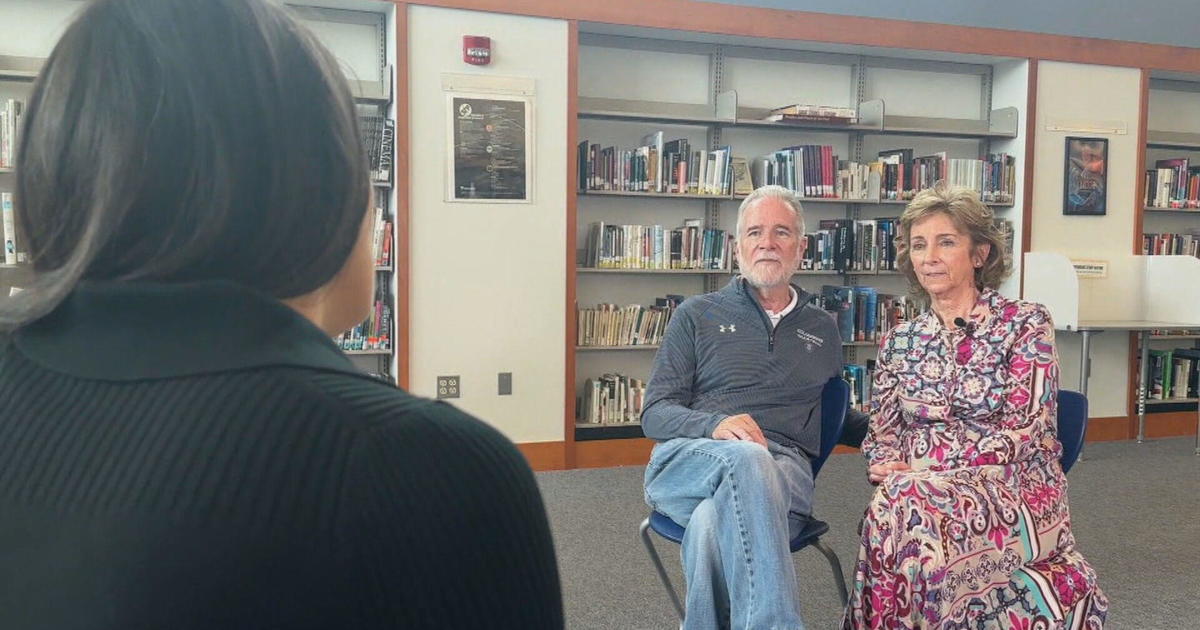Jeffco School Board OKs Modified Curriculum Review
GOLDEN, Colo. (AP) - The Jefferson County school board approved a plan Thursday to review the curriculum in some U.S. history classes, with some changes from the original proposal that sought to promote patriotism and downplay civil disobedience.
Hundreds of students, teachers and parents who have been protesting the proposal for weeks filled the evening school board meeting and watched live video on a screen set up outside.
Some in the audience yelled "resign" and "recall" as the board voted 3-2 to approve a review committee that will include students, parents and administrators.
The board voted over the objections of the panel's two-member minority, who wanted more time to study the compromise proposal offered by the district's superintendent. Minority member Lesley Dahlkemper protested that the vote violated the board's policy of not immediately voting on new proposals.
Students across a majority of the 17 high schools in Colorado's second-largest school district have left classes in droves over the past few weeks.
The protests began more than a week ago, after the Jefferson County school board proposed creating a committee to review texts and course plans, starting with Advanced Placement history, to make sure materials "promote citizenship, patriotism, essentials and benefits of the free-market system, respect for authority and respect for individual rights" and don't "encourage or condone civil disorder, social strife or disregard of the law."
That language was stripped from the version voted on Thursday evening, and the committee's membership was expanded to include representation by students, parents and administrators.
The changes didn't appear to satisfy the hundreds of students who have been leaving class to protest in waves. The history class was the first of the AP classes to be reviewed. Students plan more protests.
Before the vote, many people spoke out against members of the board's new conservative majority calling students who have walked out of class to protest "pawns."
"This is America. Stop calling us names when we exercise our rights," said Lisa Cooke, a mother of two students.
Another parent, Robert Gleason, after pointing at the Colorado flag in the front of the room, told the board he didn't want the school district to follow in the path of Texas, where the school board has also objected to the Advanced Placement history standards.
Dozens of students took the podium, with just a minute each to speak. They delivered 40,000 signatures they say they gathered from around the country in support.
Board member Julie Williams, who proposed the original controversial proposal, refused calls to withdraw it given the new compromise. "I would like to keep all of the offers on the table," she said.
Williams originally proposed that the committee review materials for classes. She and other backers have said students are being used as pawns by teachers, who are upset about the plan to base raises on an evaluation system and have been calling in sick, forcing school to be canceled some days.
Williams is one of the board's majority of three new conservative members who were backed by Republicans last year in the officially non-partisan elections, campaigning on their opposition a proposed $1 billion tax increase for schools that failed by a wide margin on the ballot.
Dahlkemper, a Democrat who was elected to the board in 2011, said the resolution went too far. She noted the movement in other places where state and local education officials have debated opting out of AP U.S. history over complaints that the new courses are un-American. The Texas state board of education, for example, has ordered teachers not to teach AP history.
"I think that's why it's raised so much concern among our parents, our community, and our students, because the question then becomes, 'What really is the agenda behind this resolution?' And I can't answer that question," Dahlkemper said.
Ashlyn Maher, 18, a Chatfield High School senior who has been helping organize protests, said she doesn't want the board to move on to reviewing curriculum of other classes, such as AP literature, and deciding which books students can read.
"We are not going to settle for empty promises. We want the school board to listen and take action on what we've said," she said.
Sarena Phu, 17, one of several students who spoke to the crowd from the back of a pickup truck before Thursday's meeting, said some of the nation's greatest achievements, including civil rights and equality for women, were achieved through protests and social unrest.
Phu, the daughter of Vietnamese immigrants, praised the U.S. for being a nation where people from all backgrounds can thrive, but she said students need to learn about the negative sides of its story, including the mistreatment of Native Americans and the internment of Japanese-Americans during World War II.
"Would you like to sweep us under the rug, too, just like our histories?" she asked.
BY COLLEEN SLEVIN, ASSOCIATED PRESS
(© Copyright 2014 The Associated Press. All Rights Reserved. This material may not be published, broadcast, rewritten or redistributed.)
Related Stories




